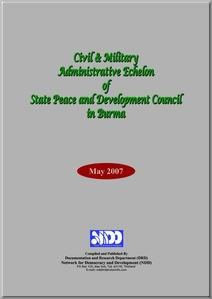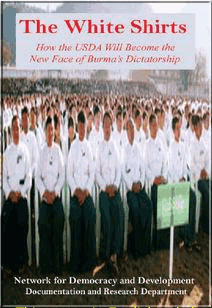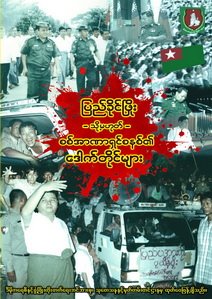WASHINGTON - Tsunami-hit Indonesia and earthquake-jolted Pakistan once risked a backlash from their predominantly Muslim populations and allowed in US military forces to help in relief operations. But cyclone-ravaged Myanmar's ruling military is suspicious of any US aid.
As the cyclone's official death toll soared to 22,000, two US Navy ships are near the waters of military-ruled Myanmar awaiting its green light to enter the reclusive nation for evacuation and other critical relief activities.
# Fast Facts
But the Southeast Asian state's generals, worried any high profile international participation could threaten its iron clad rule, is reluctant to allow in the American military despite a hugely desperate need for help.
"The generals have a choice to make between helping the Burmese people -- who are in dire need of help -- or out of fear of losing their total grip on power and spoils, effectively turning away international assistance," said Walter Lohman, a Southeast Asian expert at the Washington-based Heritage Foundation.
"There could not be a more stark choice than that," he said. "It illustrates the real human cost of the isolation the regime has brought about."
As Myanmar's military rulers lay out stringent conditions for foreign relief groups to get into the battered country, US President George W. Bush said Tuesday, "We're prepared to move US Navy assets to help find those who've lost their lives, to help find the missing, to help stabilize the situation.
"Let the United States come to help you, help the people," he told the generals, who are facing wide-ranging sanctions from Washington and other Western powers for their human rights record and other alleged abuses.
Myanmar's unbending response to the US offer for help was in stark contrast to those of Indonesia, where a tsunami in 2004 left 168,000 people dead and 600,000 people homeless, and of Pakistan, which was devastated by a powerful earthquake killing 74,000 people and displacing 3.5 million a year later.
The US military was welcomed despite the battered American image in the two countries following the 2003 Iraq invasion.
Shaken by the tragedy just two months after taking power, Indonesia's first fully elected president Susilo Bambang Yudhoyono gave the thumbs up to the United States to send its military relief juggernaut to the archipelago.
Before the disaster it would have been unthinkable for a US aircraft carrier to dock in Indonesia's waters, or US Marines to rub shoulders with troops from the world's most populous Muslim nation.
Pakistan President Pervez Musharraf also allowed American relief workers on the ground within 48 hours after the earthquake struck northwestern Pakistan and Kashmir.
The giant US military twin-rotor Chinook helicopters that plucked survivors to safety were welcomed as "angels of mercy" in Pakistan, where some militants had previously termed America the "Great Satan."
The irony is that unlike in Myanmar, where people are mostly pro-US, those in Indonesia and Pakistan were largely anti-American prior to the natural disasters that occurred, and the massive US aid helped partly restore Washington's image.
"In Burma (Myanmar), the vast majority of people are already pro-West and they would welcome US presence with open arms and that's why the military regime is suspicious about US military involvement in relief efforts," said Mohan Malik, an expert at the Hawaii-based Asia-Pacific Center for Security Studies.
"Burmese, by and large if you conduct any opinion poll, are very, very pro-America, pro-West and, in fact, want the United States to intervene in Burma militarily," he said.
"That's why the Burmese regime will never allow the United States to come in -- they know the people are fed up with the regime," Malik said.
-AFP /ls
(Source-http://www.channelnewsasia.com/stories/afp_asiapacific/view/346049/1/.html)
Wednesday, May 7, 2008
Myanmar's generals shun US aid, see risk to political power
Subscribe to:
Post Comments (Atom)



















No comments:
Post a Comment